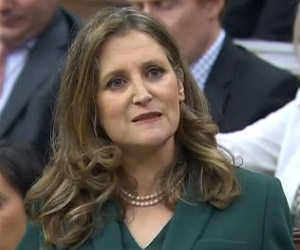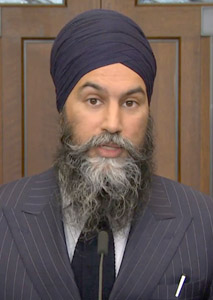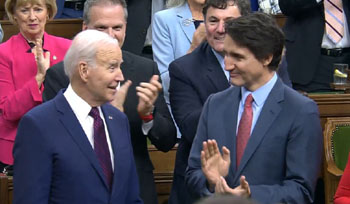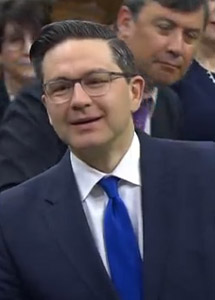
Tuesday March 28, 2023 | LANGFORD, BC [Updated March 29, 2023]
Editorial analysis by Mary P Brooke | Island Social Trends
The 2023 federal budget is doing many things at once… trying to comes to terms with the excessive spending of recent years while inching forward in selective areas of socioeconomic policy and growth.
Federal Finance Minister Chrystia Freeland said of the Liberal government today that “we worked very hard to find a balance”.
But there are noticeable gaps of a more creative nature that miss the beat for people dealing with day to day realities of building a life: no mention of housing supply supports and nothing on reforming the Employment Insurance (EI) system which already misses providing support to many Canadian workers (as was seen during the pandemic).
As if:
- HOUSING: It’s as if the correlation is not yet realized between the cost of housing and social disorder (like the absolute reliance on food banks and more seriously an increase in crime). The Liberal government seems flat-out stuck on home ownership as the way forward (offering savings mechanisms in last year’s budget) without any paradigm shift to recognizing that many Canadian will always be renters (especially with many newcomers arriving in Canada) and that lower-cost housing supply needs to be ramped up.
- BASIC INCOME: It’s as if pandemic support payments were seen as a cute aberration, to be quickly abandoned in favour of old-style traditional things when things got back to ‘normal’. For all the suffering in the pandemic, there seem to have been no lessons learned that it’s time to move toward a Basic Income formula for Canadians as they transition through stages of job loss and housing insufficiency.
GST rebate became grocery rebate:
The Liberal government had pretty much already agreed to the second GST top-up as part of the pressure that comes with the Supply and Confidence Agreement with the NDP.
When the government saw that grocery prices were the top concern for most Canadians, they rebranded the GST top up as the Grocery Rebate. No economic structural change in that move. NDP Leader Jagmeet Singh patiently accepted the political success today, even though most Canadians will see it as a Liberal idea.
As if suddenly people will soon adjust to the extraordinarily high grocery prices that have pushed upward for a full year now? That sort of adjustment to a higher weekly grocery shopping bill is simply not possible if wages or income from gig and self-employment earnings are moving upward at the same rate (almost none of them are).
As well, the so-called grocery rebate is targeted only to low and modest-income individuals and families (estimated to be 11 million people in Canada, or about 29% of the population), using existing GST rebate system to deliver as an assurance of appropriate (low) income level. That doesn’t help hard-working middle-income earners who are largely the ones creating jobs for others and paying the lion’s share of income and point-of-sale taxes into the federal coffers.
The Grocery Rebate of 2023 comes at a cost of $2.5 billion in the budget. But is not considered to be inflationary, as it will barely help make ends meet for those who have already fallen behind.
Nothing for seniors:
There was no mention of an increase in amount of Guaranteed Income Supplement (GIS) to low-income seniors, or for an Old Age Security (OAS) increase for seniors age 65 to 74 years (many of whom are still working to make ends meet).
While seniors in that age group generally only work because they have to, it’s harder than it looks (old bodies get tired), and the federal government is taking advantage of their necessity to work at the risk of these seniors have health impacts for working too hard.
Students got some breaks:
Post-secondary students will see the interest rate on student loans kick in at a higher threshold. The amount of Canada Grants for students has increased (money that is not repayable).
Credit card break for small business:
A small victory for small business in Canada today… the government will set limits on how much merchants can be charged for accepting customer payments by credit cards.
This will help all business (but particularly small business) deal with overhead costs.
Rough and tumble politics:
The NDP has called repeatedly for the targeted relief seen in the GST rebate (in January) and the grocery rebate (coming in April), and made it happen. The NDP led the way in investigating food price inflation, which made it clear to the Liberal minority government that this was a top issue.
In this budget today, the NDP has secured $13 billion over the next 5 years to implement the Canada Dental Care Plan. Now nine million Canadians presently with no dental insurance will get access to oral health care. That’s the biggest expansion of public health care in 60 years, a significant shift in health care policy for this country.
All while it’s obvious that for Canada to keep playing ball with the United States in terms of bilateral economic production and trade, it’s the NDP who have insisted on ‘strings attached’ in the way of seeing job guarantees from new massive green tech funding recipients who come to invest in Canada.
So while the mainstream political pundits in Ottawa will say this has no value come election time, that will only be true if the NDP don’t keep on delivering clear messaging about how their ‘mighty 25’ seats as a fourth party really do make a difference.
“The fourth party of the House, with its 25 seats, is out-hustling the Official Opposition in getting things done and forcing the government to respond to the needs of Canadians. There’s still much more to do, but we’re used to having to punch above our weight,” says Alistair MacGregor, MP (Cowichan-Malahat-Langford).
Disconnect in the system:
So long as the ultimate decision-making don’t suffer the way the rest of the population does (i.e. reducing grocery purchases and perhaps even skipping meals due to the high cost of food), the solutions at the federal level will not be enough.
A simple start might be … next year … that the Finance Minister in following the tradition of buying a new pair of shoes instead buys a basket of groceries. And each year they get to see how much more difficult that is. Even if Freeland had paid for her new black high heeled shoes with cash or debit (instead of a credit card) it would have been a sign that her party connects with the people.
As NDP Finance Critic Daniel Blaikie said today in Ottawa, Canada is “staring down the barrel of a recession” and felt that truly needed directions had not been taken in Budget 2023.
Conservative Leader Pierre Poilivre had some consistent talking points, the most cross-platform applicable one being the lack of attention to housing supply across the country. No one can disagree on that. But the Liberals have not yet found a way to speed up the process of supply, despite grants and other funding initiatives to or with provinces and municipalities.
Poilivre does have a keen ability to deliver big concepts with punchy truths, like people are “skipping meals, living in their parents’ basement, or can’t afford to drive to work”. In many ways it seems like the government thinks those are just talking points, when they are very bleak realities for more people than we might imagine.
===== ABOUT ISLAND SOCIAL TRENDS:
Island Social Trends Editor Mary Brooke has guided a series of publications now over 15 years on the west shore of Vancouver Island, taking a socioeconomic lens to the issues of the day and archiving it for attentive readers.
The insightful and popular publication series started with MapleLine Magazine (2008-2010), which morphed into the weekly Sooke Voice News (2011-2013), which broadened into the print/PDF weekly West Shore Voice News (2014-2020), and then the fully online news portal Island Social Trends (since mid-2020).
Ms Brooke continues to build the Island Social Trends Food Security Archive with articles about current developments around food sustainability in BC. She reports up close on Sooke School District 62 news at the board and committee levels, as well as covering ‘where the moves matter’ in municipal, provincial and federal politics.










